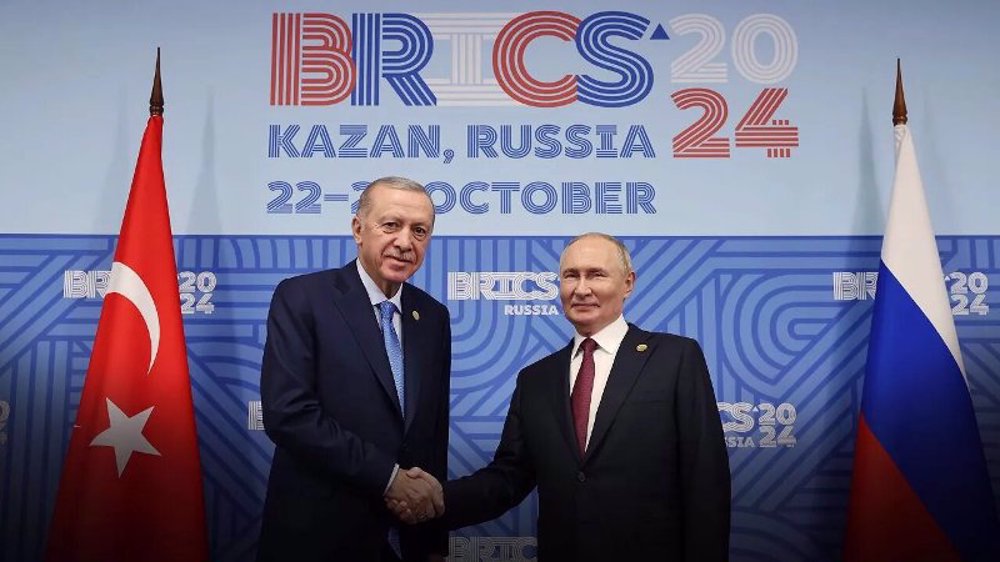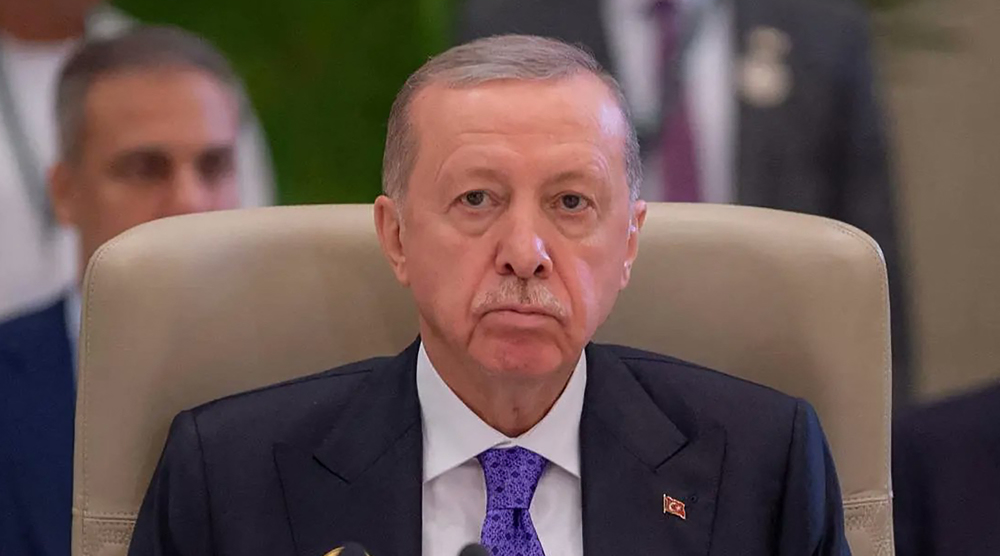Turkish foreign minister denies allegation of chemical attack in northwestern Syria
Turkish foreign minister says Turkey never used internationally-banned chemical weapons in its operations in Syria after Kurdish forces and a monitoring group accused Ankara of carrying out a gas attack in its ongoing offensive in the Arab country’s northwestern region of Afrin.
Mevlut Cavusoglu told reporters at the Munich Security Conference on Sunday that Ankara took the utmost care to protect civilians in the cross-border military operation.
"It's just a fabricated story. Turkey has never uses any kind of chemical weapons," Cavusoglu said
Cavusoglu dismissed the reports of chemical weapons use as propaganda by Kurdish organizations close to the outlawed Kurdistan Workers Party (PKK).
Elsewhere in his remarks, Cavusoglu also accused the Kurdish People’s Protection Units (YPG) of using civilians as "human shields" in areas under its control.
The remarks came after Birusk Hasaka, a spokesman for the YPG in Afrin, said that Turkish bombardment hit a village in the northwest of the region, near the Turkish border. He said it caused six people to suffer breathing problems and other symptoms indicative of a gas attack.
The so-called Syrian Observatory for Human Rights also said that Turkish forces and their Syrian militant allies had hit the village on Friday with shells. The Britain-based monitoring group also said medical sources in Afrin reported that six people in the attack suffered breathing difficulties and dilated pupils, indicating a suspected gas attack.

Syrian medical teams are reportedly working to identify the type of toxic gas used in the attack.
The general director of Afrin Hospital, Jiwan Mohammad, has recently told Syria’s official news agency, SANA, that six people had been admitted to the medical facility with symptoms of “breathing difficulties, coughing, and burning all over their bodies,” which he said were indicative of a chemical weapon attack.
He added that the victims came from al-Mazyaneh village on the outskirts of Afrin.
Mohammad noted that four of the victims were stable, while two others were in a critical condition.
Turkey launched the so-called Operation Olive Branch in Afrin last month in a bid to eliminate the YPG, which Ankara views as a terror organization and the Syrian branch of the PKK.
The YPG forms the backbone of the Syrian Democratic Forces (SDF), a US-backed anti-Damascus militant group.

Operation Olive Branch in Afrin region is Turkey's second major military intervention in Syria during an unprecedented foreign-backed militancy that broke out in 2011.
In August 2016, Turkey began a unilateral military intervention in northern Syria, code-named Operation Euphrates Shield, sending tanks and warplanes across the border. Ankara claimed that its military campaign was aimed at pushing Daesh from Turkey's border with Syria and stopping the advance of Kurdish forces, who were themselves fighting Daesh.
Turkey ended its campaign in northern Syria in March 2017, but at the time did not rule out the possibility of yet another act of military offensive inside the Arab country.
VIDEO | New Delhi chokes under toxic smog as air quality remains at hazardous levels
VIDEO | Press TV's news headlines
VIDEO | ICC's arrest warrant for Netanyahu to worry Western politicians: Former British diplomat
Iranians protest against Israel after Netanyahu ICC warrant
Germany undecided on complying with ICC arrest warrants for Israeli war criminals
VIDEO | Former FBI agent criticizes US Congress for 'outright corruption'
IRGC chief urges Muslim countries to cut aid routes to Israel
'New chapter in cooperation': Iran, Venezuela sign new MoUs










 This makes it easy to access the Press TV website
This makes it easy to access the Press TV website